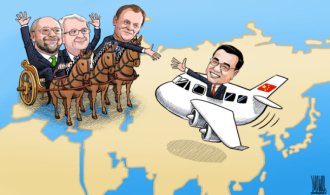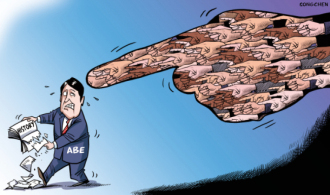Riyadh looking to assert itself in Middle East
By Wang Hui (China Daily) Updated: 2016-01-06 08:00Yet, if the complexity of ties between Iran and Saudi Arabia and Western countries is taken into consideration, it is not difficult to understand Saudi Arabia's strong reaction this time.
Thanks to the shale gas revolution, the US is less dependent on Saudi oil today, which has led to a decline in Saudi Arabia's importance on the US' geopolitical chessboard.
Since the rise of the Islamic State terrorist group in Iraq and Syria, an increasing number of politicians and media commentators in the West have openly accused Riyadh of "funding jihadists".
The shift in relations between Saudi Arabia and the US-led West culminated last month in a new anti-terror coalition of 34 Sunni states rallied by Riyadh to boost its own profile in the campaign, which was obviously futile in the face of the much larger coalition led by Washington.
Meanwhile, Iran's relations with the US-led West have dramatically improved. In July, Teheran and five permanent members of the UN Security Council and Germany reached a historic agreement which paved the way for resolving the long-standing Iranian nuclear crisis peacefully.
However, the agreement was met with strong opposition from some US allies in the region including Saudi Arabia, and its severing ties with Iran can be perceived as an open show of defiance to the US' warming ties with Iran.
As the US still needs Riyadh as an important ally to project its power and help it tackle thorny issues in the region, Washington is asking for both Riyadh and Teheran to exercise restraint after condemning the torching of Saudi Embassy in the strongest terms.
But the sole superpower obviously should do more and draw Riyadh and Teheran back to diplomatic channels to resolve their differences.
The author is a senior writer with China Daily.
wanghui@chinadaily.com.cn
- China calls for 'calm and restraint' on Iran-Saudi tension
- Concerns grow over Saudi-Iranian rising tensions
- Saudi Arabia severs ties with Iran after attacks
- Iran says not seeking tension with Saudi Arabia
- 40 held after attack on Saudi embassy
- Saudi Arabia cuts ties with Iran after embassy in Tehran attacked

Charlotte and Emilie Meaud, twin sisters, were killed at the terrace of the Carillon, during the attacks on Paris, on the 13th of November.










